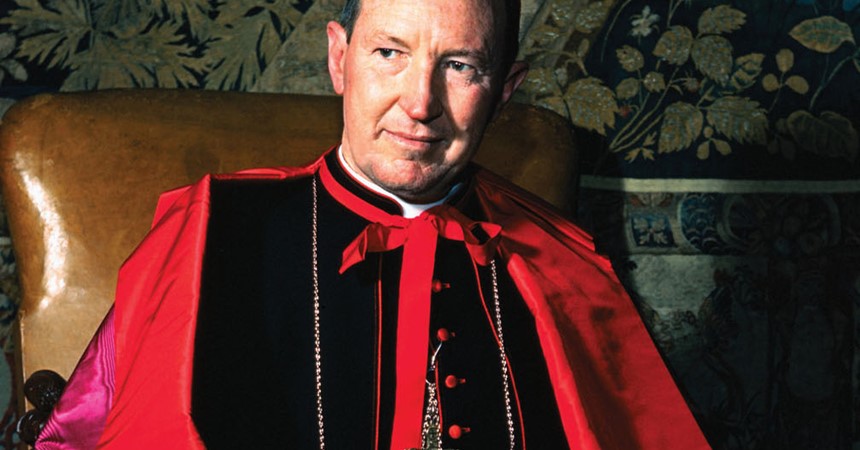Gilroy’s mother offered a model of faith while his father was a model of instability, prompting in Gilroy consistency and financial prudence. He claimed he always wanted to be a priest, but first he was a telegrapher which took him to Gallipoli.
After being priest and then bishop in Port Augusta, his elevation to Archbishop of Sydney, and later cardinal, recognised his organisational skills but was also prompted by the need to ‘Australianise’ church leadership at a time of Irish dominance.
His talent for bureaucracy led him to amalgamate a bag of semi-independent Catholic papers into the Catholic Weekly, ensuring nothing of which he didn’t approve was published. Post-war, he handled the huge pressure on the Catholic schools from immigration, as student numbers doubled.
The issue of communism created pressure from all sides. Gilroy saw communism as a world-wide, godless conspiracy ‒ which Luttrell suggests was ‘simplistic, if not naïve’ ‒ and unrelentingly supported the Vietnam War. The ‘Movement’ caused more headaches. Although Gilroy supported its anti-communism, he was also fearful of ‘Catholic’ organisations out of direct Church control, not to mention the damage to Labor, then closely tied to the Catholic Church.
As for Vatican II, Gilroy was loyal but “unenthusiastic”. He upheld the hierarchy of the Church and was not keen on the more egalitarian and democratic aspects of the Council. The world the ‘60s ushered in increasingly “bewildered” him.
Luttrell uses the metaphor of Gilroy steering the ship through turbulent waters, but it could also be argued that he was reluctant to modernise the ship. Gilroy would have agreed with Chesterton that the Church is not to move with the times but is a rock upon which the waves of modernity break.
Luttrell’s distillation of much research is impressive but Gilroy remains a closed book ‒ almost certainly what he would want.
John Luttrell Norman Thomas Gilroy: An Obedient Life St Pauls 2017.




























































































